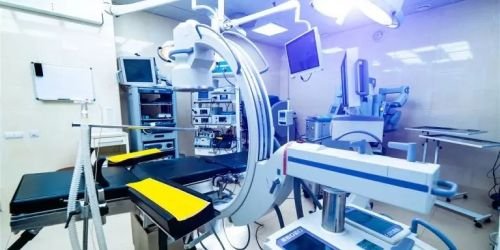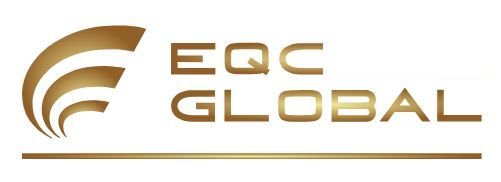Understanding ISO 22301: Business Continuity Management System Certification

ISO 22301 Business Continuity Management Certification
What is ISO 22301 and Why is Certification Important?
ISO 22301 is an international standard that outlines the requirements for establishing, implementing, maintaining, and continually improving a Business Continuity Management System (BCMS). This standard provides a structured framework that organizations can adopt to ensure that they are prepared for and can effectively manage disruptive incidents. ISO 22301 is crucial for organizations seeking to enhance their resilience, thereby ensuring operational continuity even in the face of significant disruptions.
The significance of certification to ISO 22301 cannot be overstated. Achieving certification not only demonstrates an organization’s commitment to effective business continuity management but also enhances its credibility among stakeholders. Certification verifies that an organization adheres to best practices and international benchmarks, thereby fostering trust and confidence among clients, suppliers, and partners. Moreover, it signals to employees that their organization takes risk management seriously, potentially increasing morale and engagement.
Key components of ISO 22301 include the allocation of suitable resources, thorough risk assessments, and the establishment of clear policies and objectives related to business continuity. Organizations are required to prepare comprehensive business impact analyses that identify critical functions and the potential impact of disruption on those functions. This process is vital for establishing effective response strategies and recovery plans. Regular testing and exercises are also emphasized in the standard, ensuring that organizations remain prepared and can adapt to changing circumstances.
Ultimately, achieving ISO 22301 certification offers a multitude of benefits, including enhanced resilience against a range of possible threats, decreased downtime in the event of an incident, and improved recovery strategies. Organizations that prioritize effective business continuity practices can mitigate risks and safeguard their operations, thereby ensuring long-term sustainability in an increasingly uncertain world.

ISO 22301 Business Continuity Management
Sectors that Should Consider ISO 22301 Certification
ISO 22301 certification is a crucial framework for various sectors, providing a structured approach to managing business continuity. Its relevance spans multiple industries, particularly those where operational downtime can have significant repercussions. Healthcare is one such sector; disruptions in services can directly affect patient care and safety, making a robust Business Continuity Management System (BCMS) imperative. Hospitals and healthcare providers must ensure they can maintain critical services during emergencies or unforeseen disruptions.
In the finance sector, the impact of business disruptions can lead to severe financial losses and damage to reputations. Banks, investment firms, and insurance companies are tasked with safeguarding sensitive financial information and ensuring uninterrupted service to clients. The implementation of ISO 22301 provides these institutions with the necessary framework to identify risks and establish effective plans for crisis management and recovery.
Manufacturing is another industry where the need for ISO 22301 certification stands out. Supply chain disruptions, equipment failures, or natural disasters can halt production, leading to significant losses. Manufacturing companies benefit from a BCMS by anticipating potential threats and ensuring that operations can swiftly resume, thereby protecting both revenue and operational integrity.
Information Technology (IT) companies also encounter the threat posed by cyber-attacks and system failures. These events can lead to data breaches and loss of vital services. By adopting ISO 22301, IT firms can protect their infrastructure, establish recovery protocols, and maintain service continuity, reassuring clients and stakeholders of their commitment to resilience.
Lastly, emergency services, including police, firefighting, and medical response teams, must adopt ISO 22301 to ensure readiness in crisis situations. These services are critical, and their ability to respond effectively hinges on well-structured continuity plans that mitigate the impact of potential disruptions.
Moreover, the benefits of ISO 22301 certification extend to both large corporations and small to medium-sized enterprises (SMEs). While larger organizations often have more resources to allocate toward continuity planning, SMEs, too, can enhance their resilience and improve stakeholder confidence through the implementation of this internationally recognized standard.

ISO 22301 Business Continuity Management Audit
Audit Requirements for ISO 22301 Certification
Achieving ISO 22301 certification necessitates a comprehensive understanding of the audit requirements involved in the Business Continuity Management System (BCMS). The auditing process is crucial in assessing whether an organization has effectively implemented and maintained the standards set forth by ISO 22301. This process generally includes both internal and external audits, each serving a distinct purpose.
Internal audits are conducted by the organization itself. They aim to evaluate the BCMS against the documented policies and procedures, ensuring compliance with the requirements of ISO 22301. These audits involve a systematic examination of documentation such as business continuity plans, risk assessments, and performance metrics. Organizations are expected to perform internal audits at planned intervals to provide regular insights into the effectiveness of their BCMS and identify areas for improvement.
On the other hand, external audits are carried out by independent certification bodies. These auditors assess compliance with the ISO 22301 standards and evaluate the overall effectiveness of the BCMS. An external audit not only verifies an organization’s adherence to the standard but also provides an objective evaluation of its processes and practices. Organizations seeking certification must adequately prepare by maintaining thorough documentation and offering access to relevant records, including prior internal audit results and management reviews.
Continual improvement is a cornerstone of a successful BCMS, and both internal and external audits play an integral role in fostering this progress. Through periodic audits, organizations can uncover inefficiencies or gaps within their existing systems, thereby allowing them to address these weaknesses proactively. Furthermore, ongoing compliance facilitated by regular audits ensures that the BCMS remains not only effective but also aligned with the evolving needs of the organization and its stakeholders.
Benefits of ISO 22301 Certification
ISO 22301 certification offers numerous advantages for organizations seeking to enhance their business continuity management practices. One of the primary benefits is the increased organizational resilience it fosters. By implementing a systematic approach towards managing disruptions, businesses can better prepare for unforeseen events, ensuring that critical operations continue with minimal interruption. This proactive stance not only protects the organization but also reinforces its capability to adapt in a rapidly changing environment.
Additionally, attaining ISO 22301 certification significantly safeguards an organization’s reputation. In an era where public perception can greatly influence business success, being certified demonstrates a commitment to professionalism and excellence. Stakeholders, including customers, suppliers, and investors, tend to prefer businesses that prioritize continuity planning, as it reflects reliability and stability. As a result, certification can lead to enhanced stakeholder trust, which is vital for maintaining long-term partnerships and securing new business opportunities.
Furthermore, organizations that achieve ISO 22301 certification can experience notable financial benefits. Adopting robust business continuity planning measures can yield substantial cost savings by reducing downtime during crises. Operational efficiency is significantly improved as processes are streamlined, and resources are better allocated. The certification also assists companies in meeting regulatory and industry requirements, which may save costs associated with compliance failures and related penalties. In a landscape where adhering to standards is increasingly important, organizations are further encouraged to pursue ISO 22301 certification to align with industry expectations.
In essence, the benefits of ISO 22301 certification extend beyond mere compliance; they cultivate resilience, enhance reputation, foster stakeholder confidence, and enable financial prudence. By integrating these advantages, organizations can significantly improve their business continuity management practices and bolster their overall performance.
How Can We Assist You?
Would you like to learn more about our services? Feel free to contact us today!
If you’re interested in professional certification, we’d be happy to provide you with an excellent price offer.
ISO 13485:2016 Certification – Medical Devices Management Systems

ISO 13485 Certification
What is ISO 13485 and Why is Certification Important?
ISO 13485 is an internationally recognized standard that sets the requirements for a quality management system (QMS) specifically for organizations involved in the design, development, production, installation, and servicing of medical devices. The primary purpose of this standard is to ensure that medical device manufacturers consistently meet both customer and regulatory requirements, thereby enhancing the overall quality of products allowed in the market. By focusing on process effectiveness and risk management, ISO 13485 helps organizations maintain a system that is not only compliant but also capable of producing safe and effective medical devices.
Certification to ISO 13485 is critical for various reasons. Firstly, it serves as a formal recognition by an independent third party that an organization adheres to the stringent requirements laid out in the standard. This certification acts as a powerful tool for demonstrating compliance to stakeholders including regulatory bodies, industry partners, and customers. Stakeholders often view ISO 13485 certification as a mark of credibility and trust, which can significantly influence purchasing decisions and foster confidence in the products offered.
Moreover, ISO 13485 certification opens doors to enhanced market access. Many countries require medical devices to meet specific quality standards before they can be sold within their borders. Having ISO 13485 certification can facilitate this process, thus allowing organizations to penetrate new markets with reduced barriers. Additionally, certification contributes to improved product quality and safety, as it encourages organizations to implement more effective quality management practices and to consistently evaluate and enhance their processes.
In conclusion, ISO 13485 not only provides a framework for ensuring the quality and safety of medical devices but also acts as an essential asset for organizations seeking to build trust, enhance market reach, and improve operational efficiencies in the medical device sector.

ISO 13485 Benefits
Benefits of Achieving ISO 13485 Certification
Achieving ISO 13485 certification provides numerous advantages for organizations operating within the medical devices industry. Primarily, this certification signifies a commitment to sustaining high-quality standards in medical device manufacturing and quality management systems. One of the most notable benefits is the marked improvement in product quality. By adhering to stringent ISO 13485 standards, organizations can systematically identify and mitigate risks, leading to the creation of safer and more effective medical devices.
Improved product quality naturally correlates with enhanced customer satisfaction. When medical devices meet or exceed regulatory and quality expectations, customers show greater trust in an organization’s products, resulting in long-term loyalty. This trust not only leads to repeat purchases but also generates positive word-of-mouth, which can significantly boost an organization’s reputation in a highly competitive market.
An additional benefit of obtaining ISO 13485 certification is the streamlining of processes. Implementing an effective quality management system often forces organizations to evaluate and refine their operational workflows. This continual improvement can lead to increased efficiency, reductions in time spent on non-conforming products, and consequently, a decrease in costs associated with quality fails. Moreover, the standard encourages organizations to eliminate waste by optimizing resources, which contributes to a more sustainable operation overall.
Furthermore, achieving ISO 13485 can give organizations a substantial competitive edge. It can serve as a strong differentiator in a crowded marketplace, making it easier for businesses to enter new global markets where adherence to international quality standards is paramount. This often translates to increased sales opportunities as clients seek out certified suppliers for their products. In summary, the comprehensive benefits of ISO 13485 certification extend well beyond compliance, ultimately fostering a culture of quality and resilience within organizations in the medical devices sector.
Overview of Certification Services for ISO 13485
Certification services for ISO 13485 play a crucial role in ensuring that organizations manufacturing medical devices meet international quality management standards. The process typically begins with an initial audit, conducted by an accredited certification body. During this audit, the organization’s systems and processes are evaluated against the requirements outlined in ISO 13485. This assessment aims to identify any non-conformities that may exist within the existing framework of the organization’s quality management system.
Following the initial audit, organizations may be required to implement corrective actions to address any identified deficiencies. This step is pivotal as it demonstrates the organization’s commitment to compliance with ISO 13485 standards. Certification bodies will review the corrective actions undertaken to ensure that they effectively resolve the issues highlighted during the audit. Once the certification body is satisfied with these corrective actions, the organization may receive formal ISO 13485 certification, signifying its adherence to quality control measures in medical device management.
An essential aspect of maintaining ISO 13485 certification involves ongoing surveillance audits. These periodic assessments are conducted to confirm that the organization continues to comply with the standards and has effectively implemented changes as required. Surveillance audits not only assure certification bodies but also instill confidence in customers and stakeholders regarding the organization’s commitment to quality.
Documentation plays a significant role throughout the certification process. Organizations must maintain comprehensive records that demonstrate compliance with ISO 13485 requirements, including quality manuals, procedural documents, and audit reports. Moreover, selecting the right certification partner is vital; organizations should opt for a certification body that possesses expertise in the medical device sector. A knowledgeable partner will facilitate a smoother certification journey, providing guidance on best practices and ensuring adherence to regulatory obligations.

ISO 13485 Requirements
Understanding the ISO 13485 Requirements
ISO 13485 is an internationally recognized standard that outlines the specific requirements for a quality management system (QMS) pertaining to medical device manufacturers. This standard emphasizes a comprehensive approach to the design, manufacturing, and distribution of medical devices, focusing on the need for organizations to demonstrate their ability to provide products that consistently meet customer and regulatory requirements.
The standard comprises several vital clauses, each addressing crucial aspects of quality management. One of the core areas is the quality management system requirements, which involves establishing and maintaining an effective QMS that proactively identifies and mitigates risks associated with the products. Organizations must ensure that the QMS is compatible with their overall business processes and can adapt to changes in regulatory expectations or market demands.
Next, documentation controls are imperative to maintain clarity and accountability within processes. ISO 13485 requires organizations to establish procedures for document management, including the creation, approval, review, and revision of documentation pertinent to the QMS. This systematic documentation ensures that essential information is accessible, up-to-date, and properly managed.
Moreover, the standard stipulates management responsibility, underscoring the importance of leadership in cultivating a quality-centric culture. Senior management must demonstrate commitment, set quality objectives, and regularly review the QMS for effectiveness. This commitment fosters an environment where continuous improvement is prioritized, ultimately leading to enhanced product quality.
Resource management encompasses the provision of adequate resources, including personnel competence and training, infrastructure, and work environment necessary for a compliant QMS. Product realization refers to processes from design and development to production and delivery, emphasizing robust planning and execution to ensure regulatory compliance.
Finally, measurement, analysis, and improvement clauses involve the need for organizations to implement strategies for performance monitoring and data analysis. Continual improvement of the QMS is critical to adapting to evolving challenges in the medical device sector. By optimizing these requirements, organizations can enhance product quality and ensure compliance with ISO 13485.
How Can We Assist You?
Would you like to learn more about our services? Feel free to contact us today!
If you’re interested in professional certification, we’d be happy to provide you with an excellent price offer.

